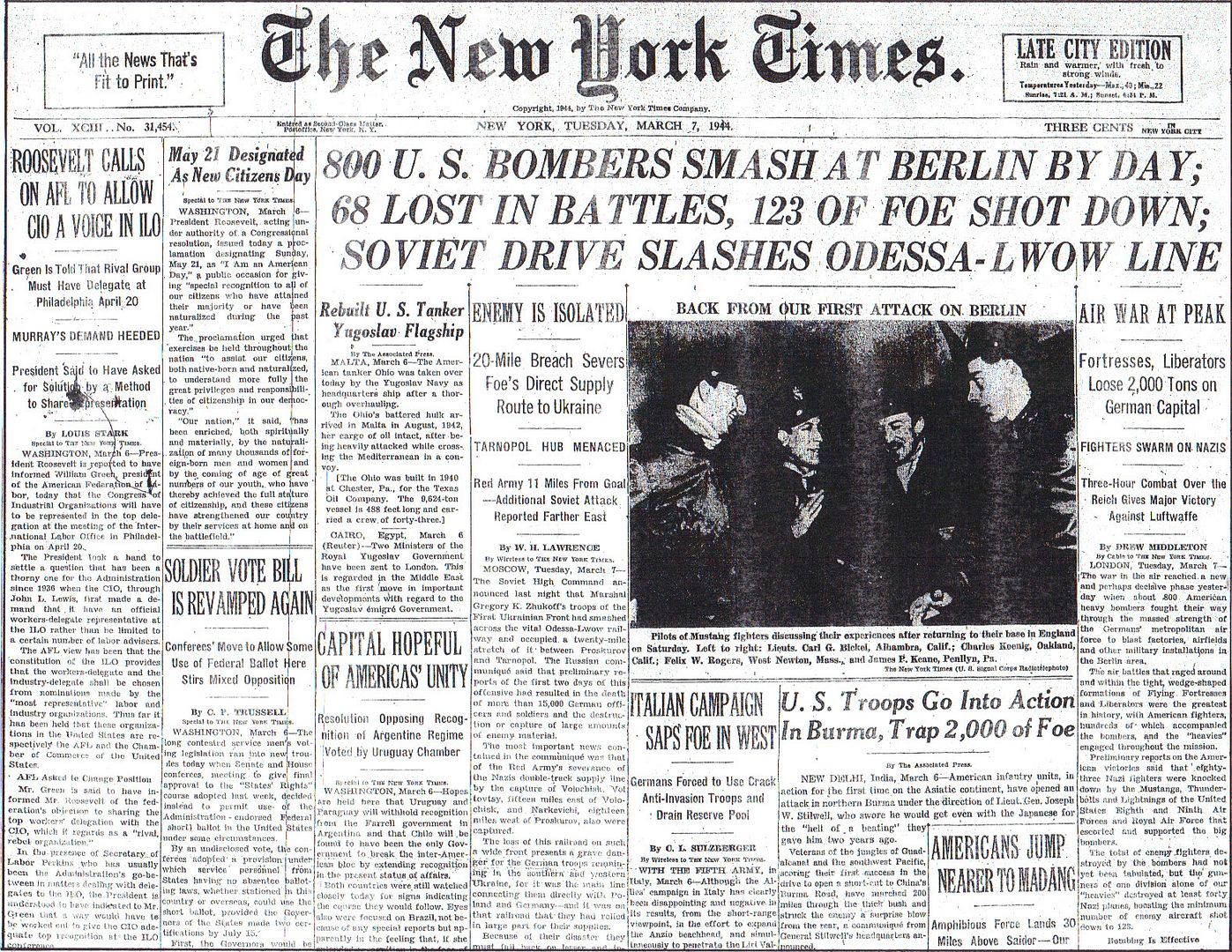
Posted on 03/07/2014 4:35:34 AM PST by Homer_J_Simpson

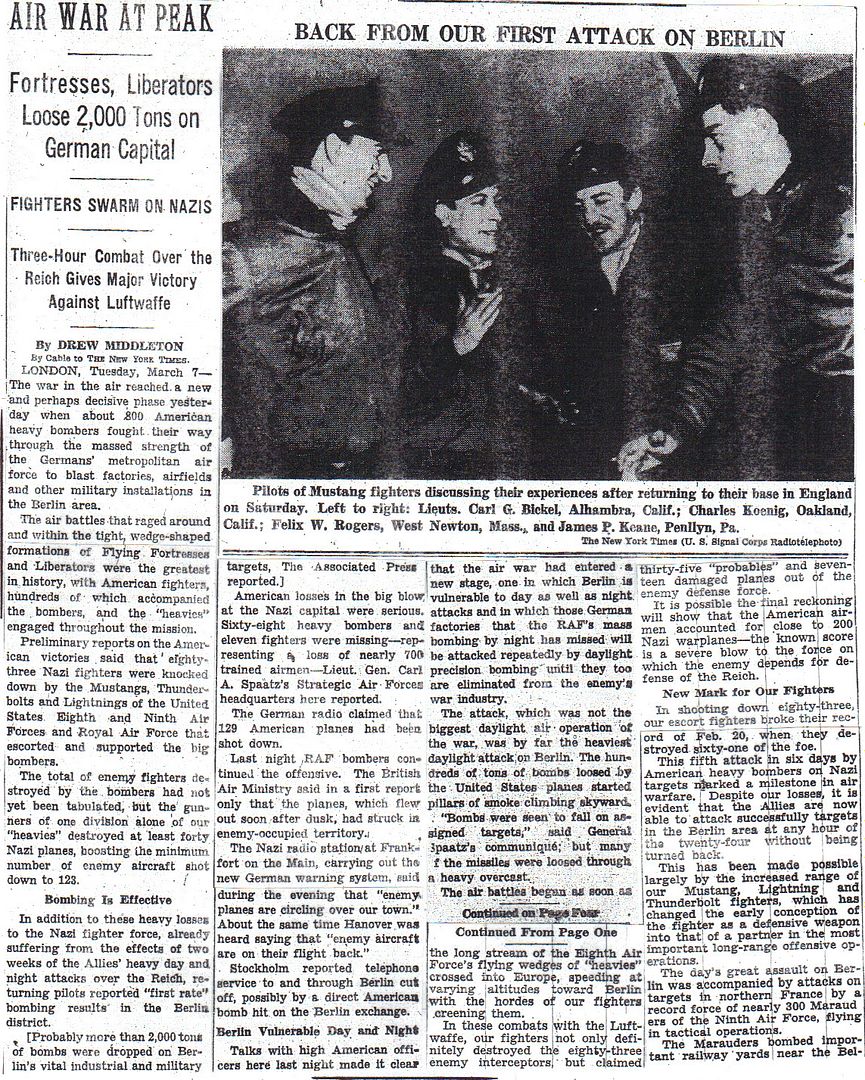
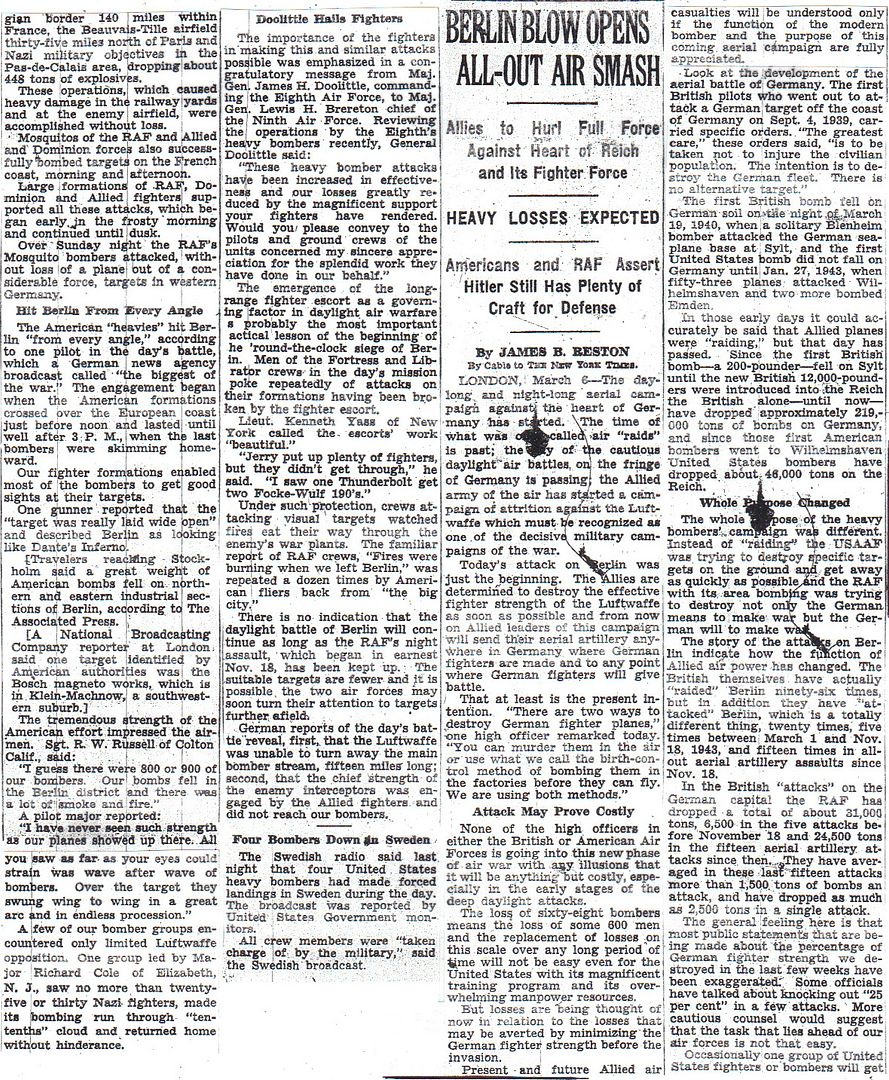
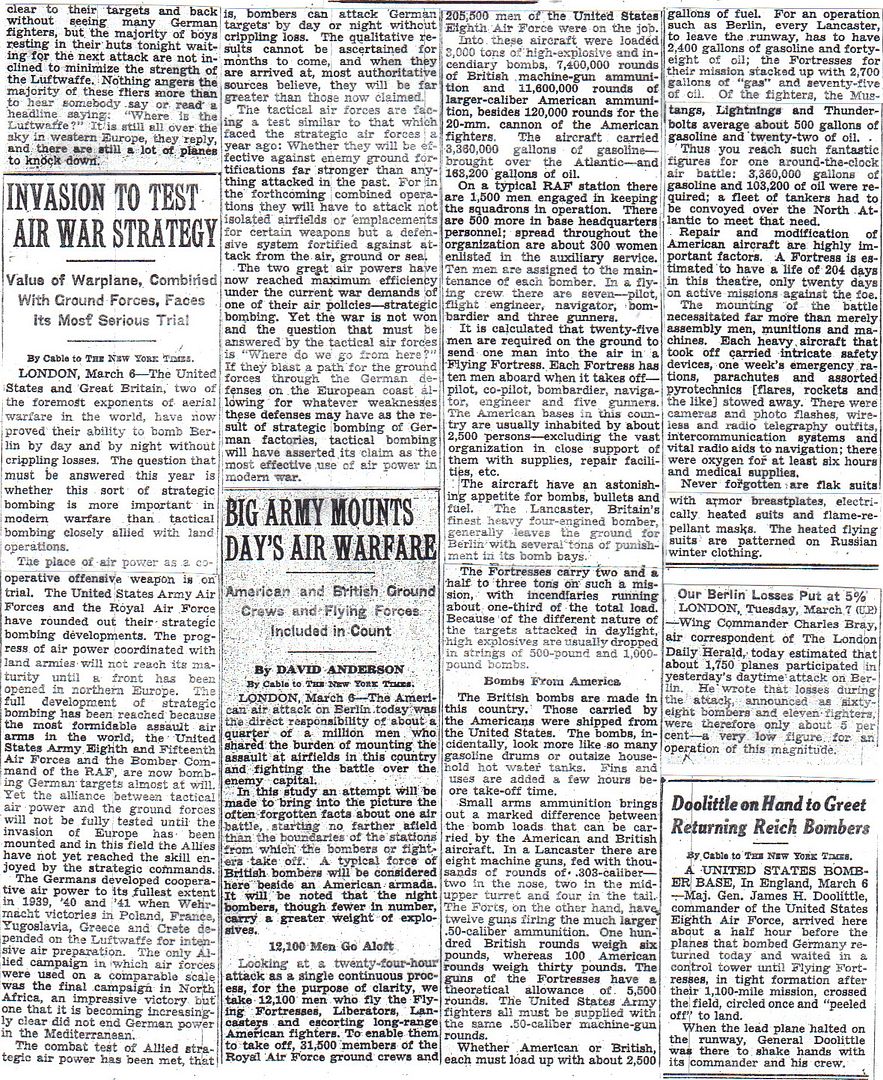
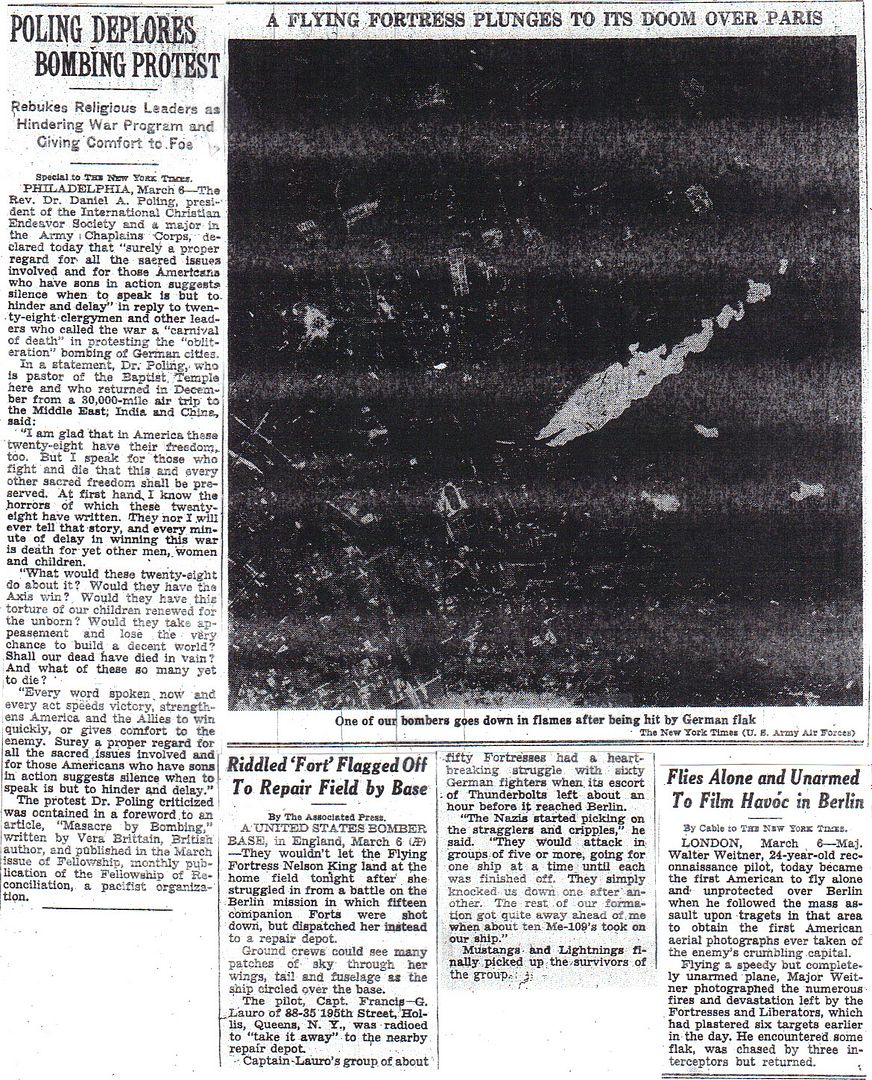
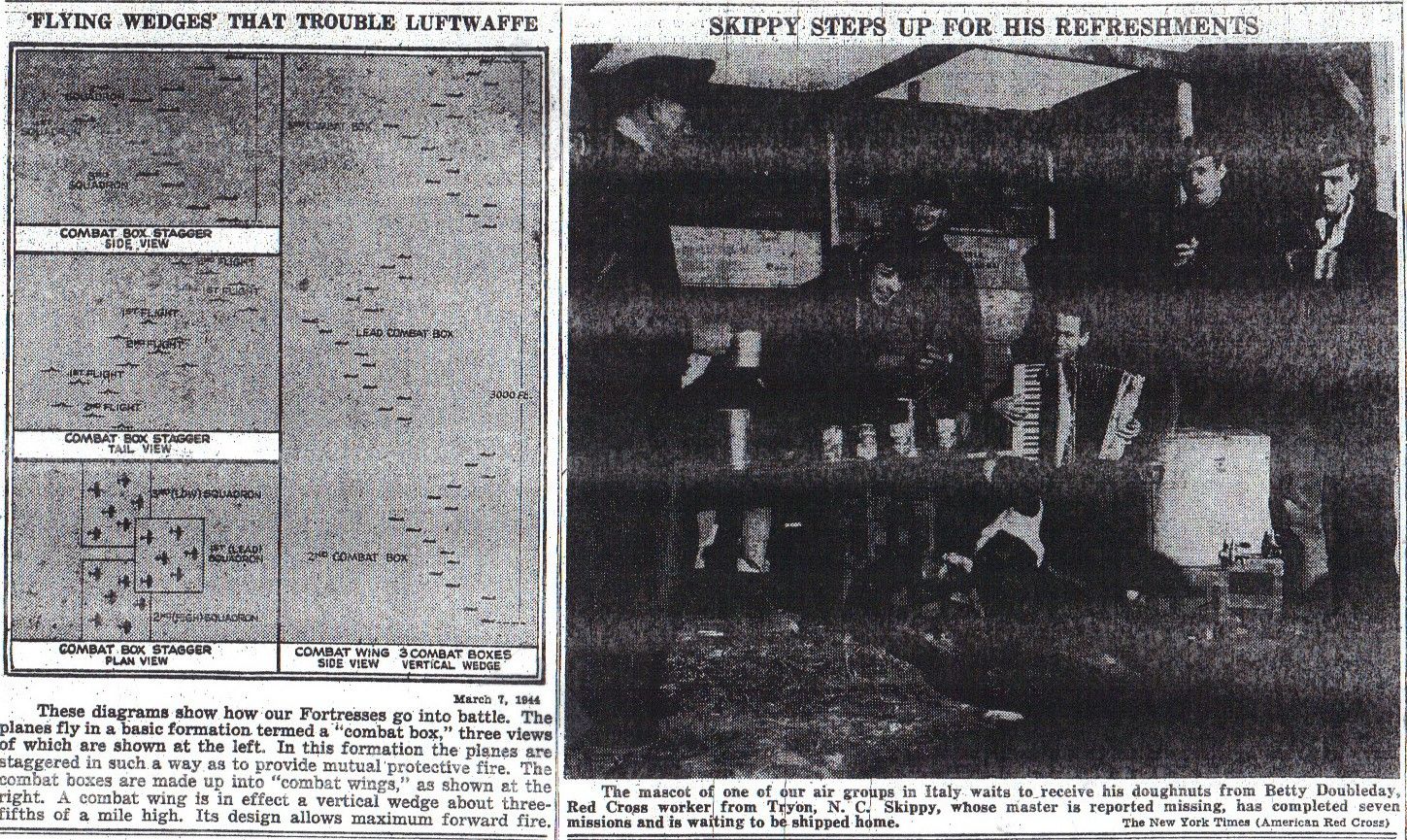
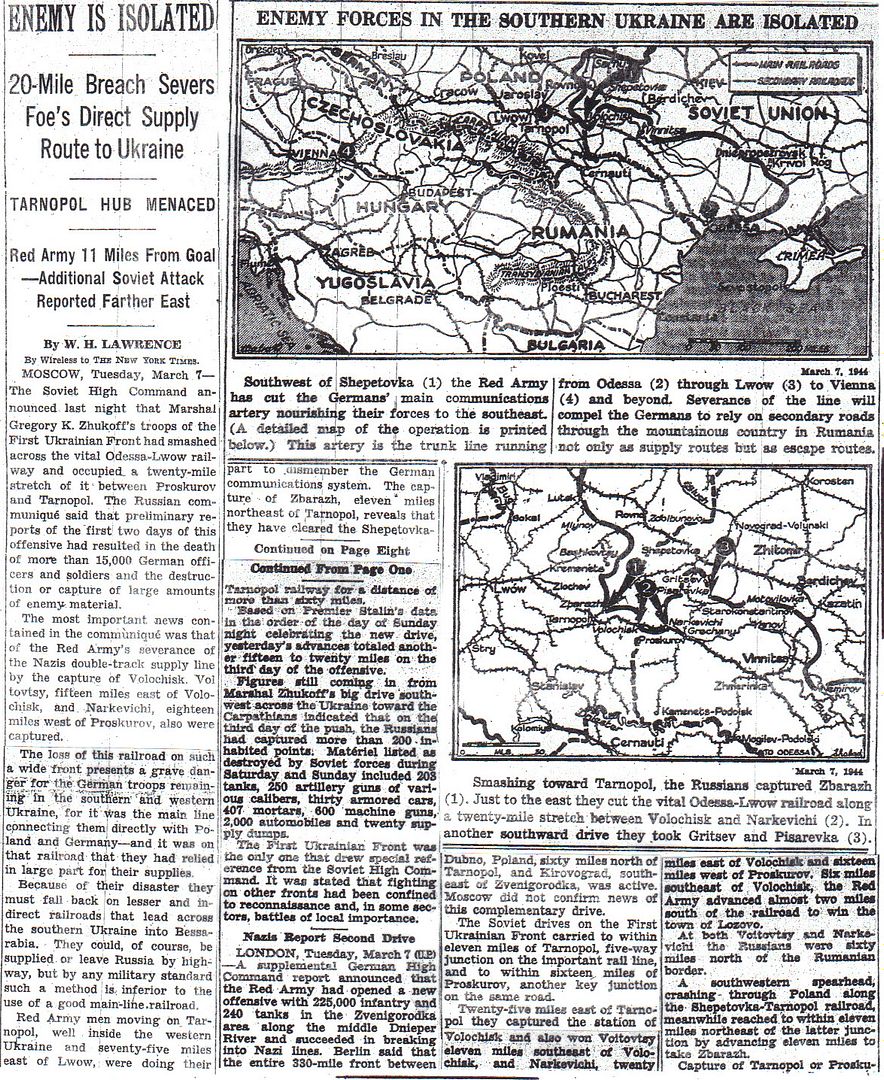
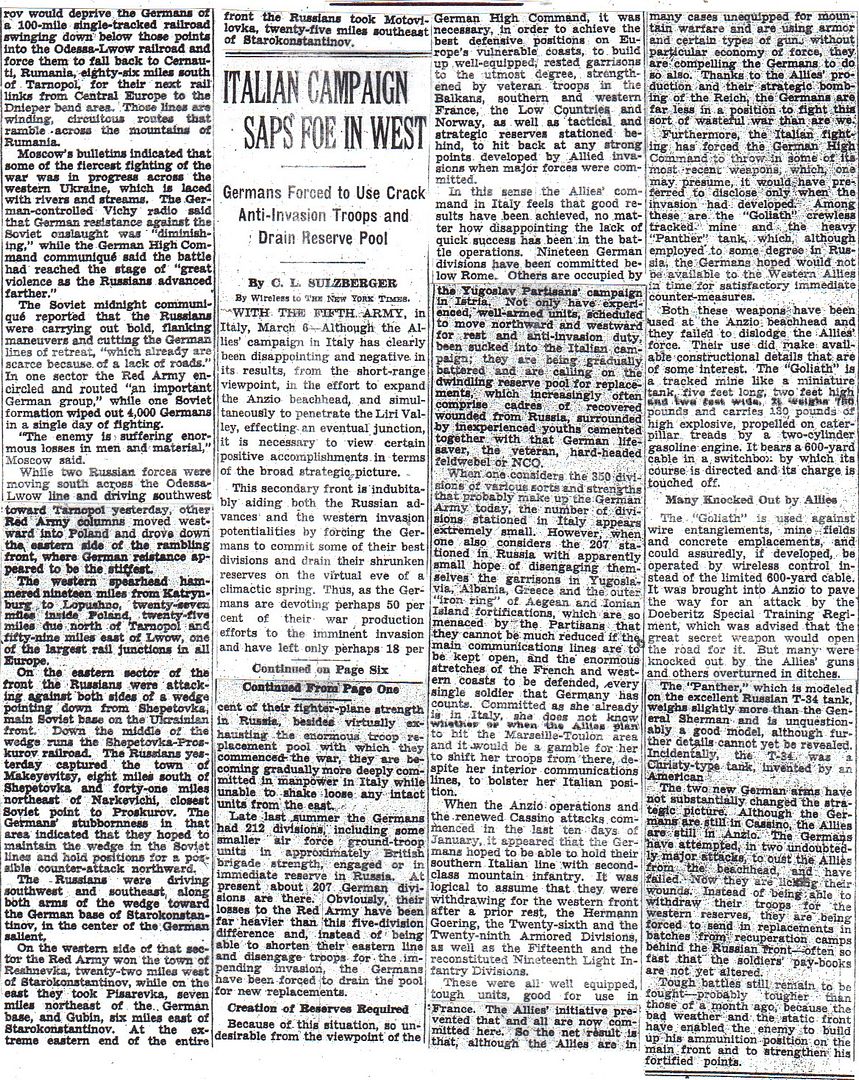
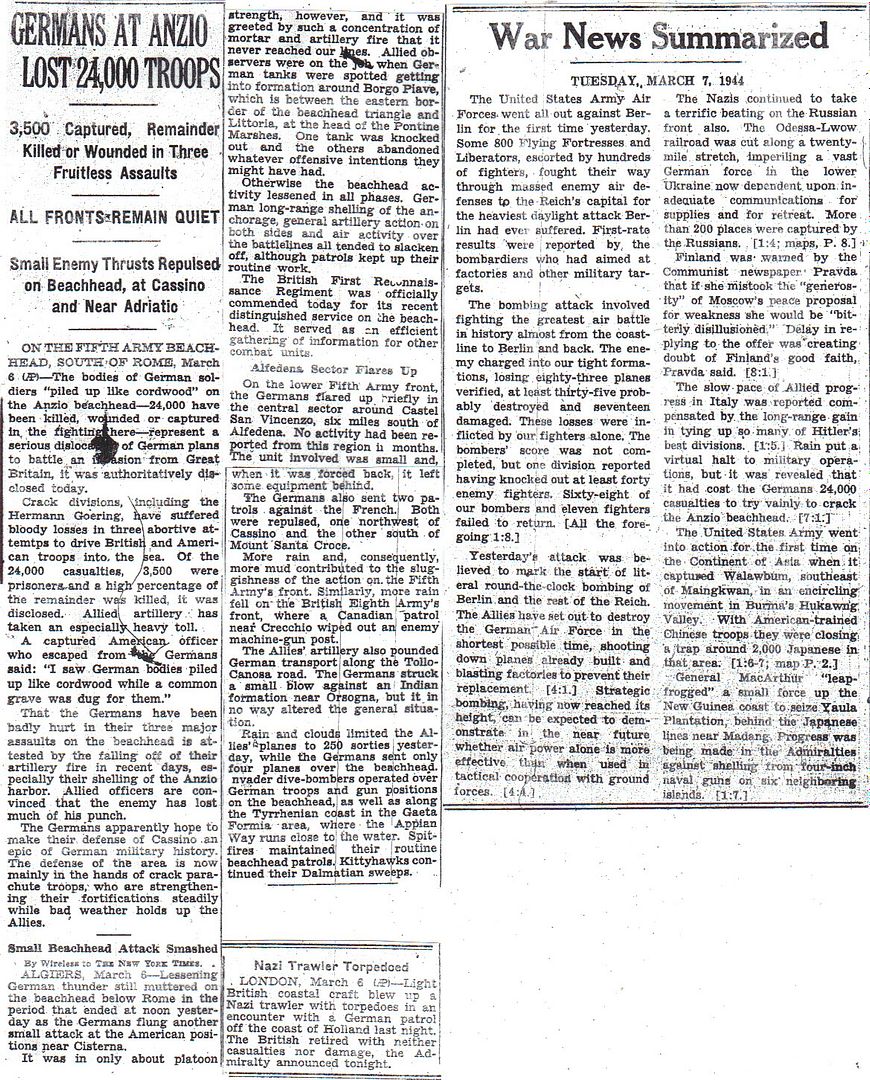
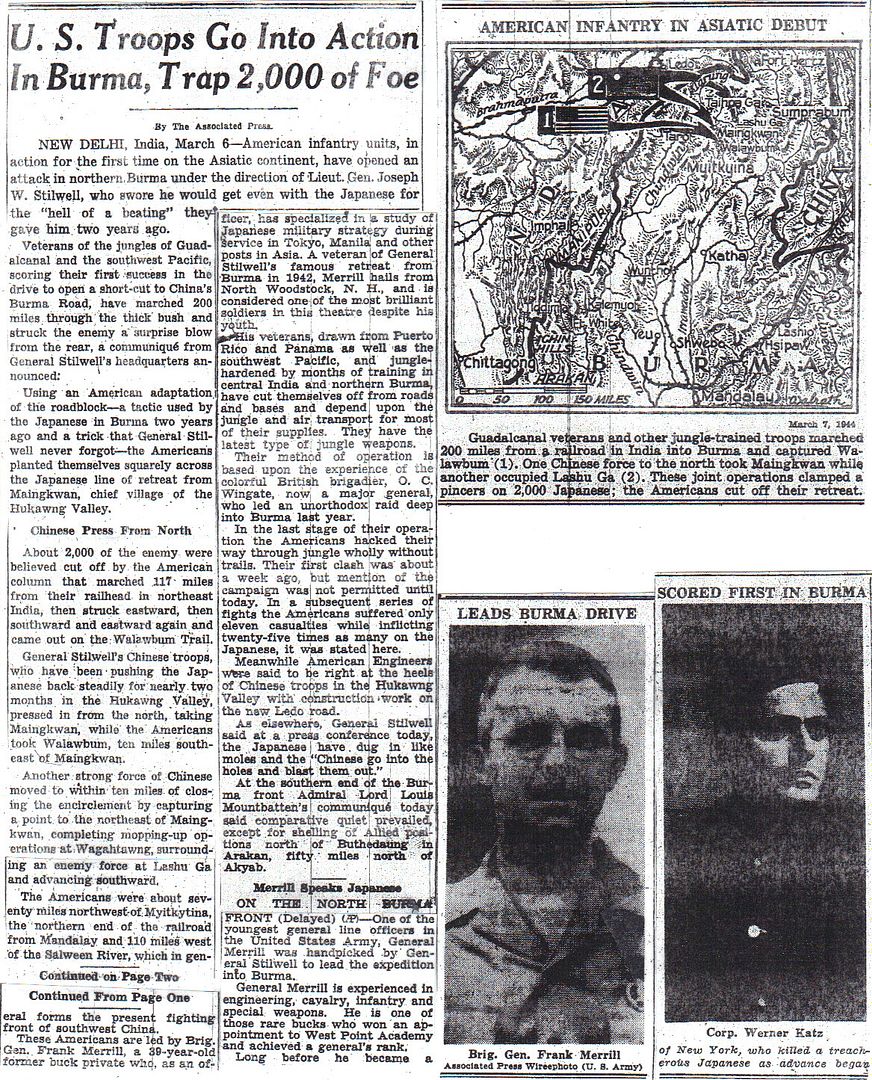
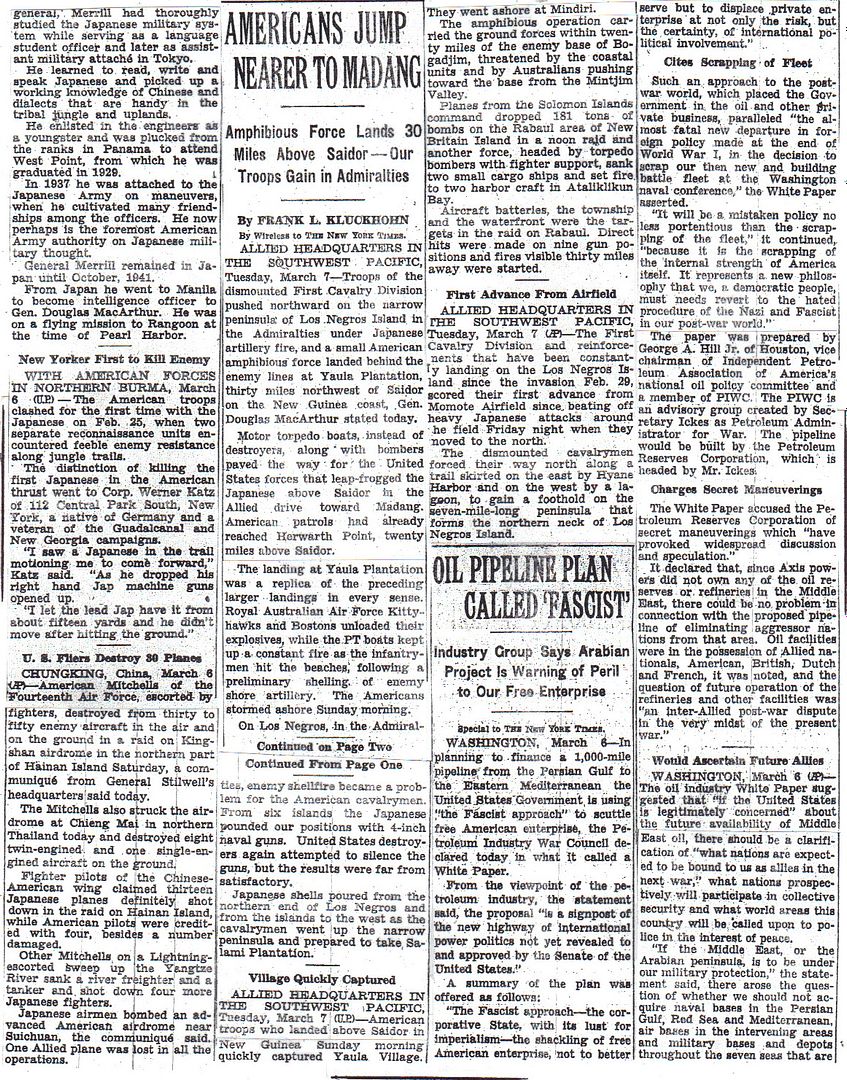
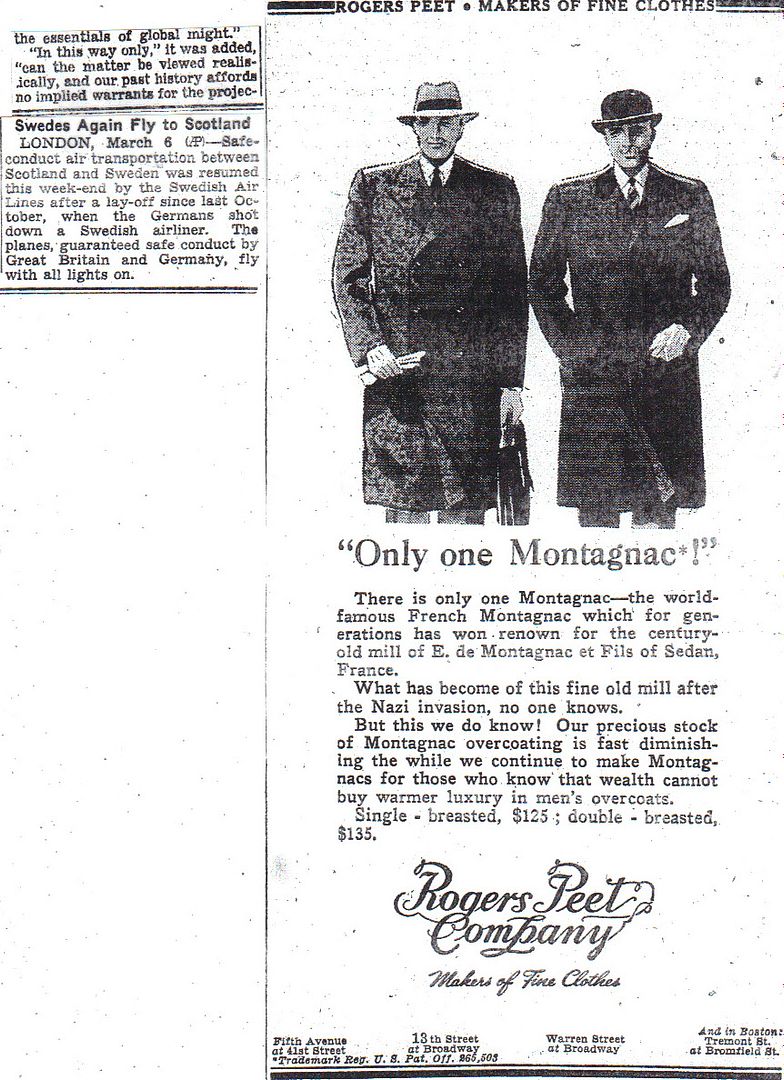
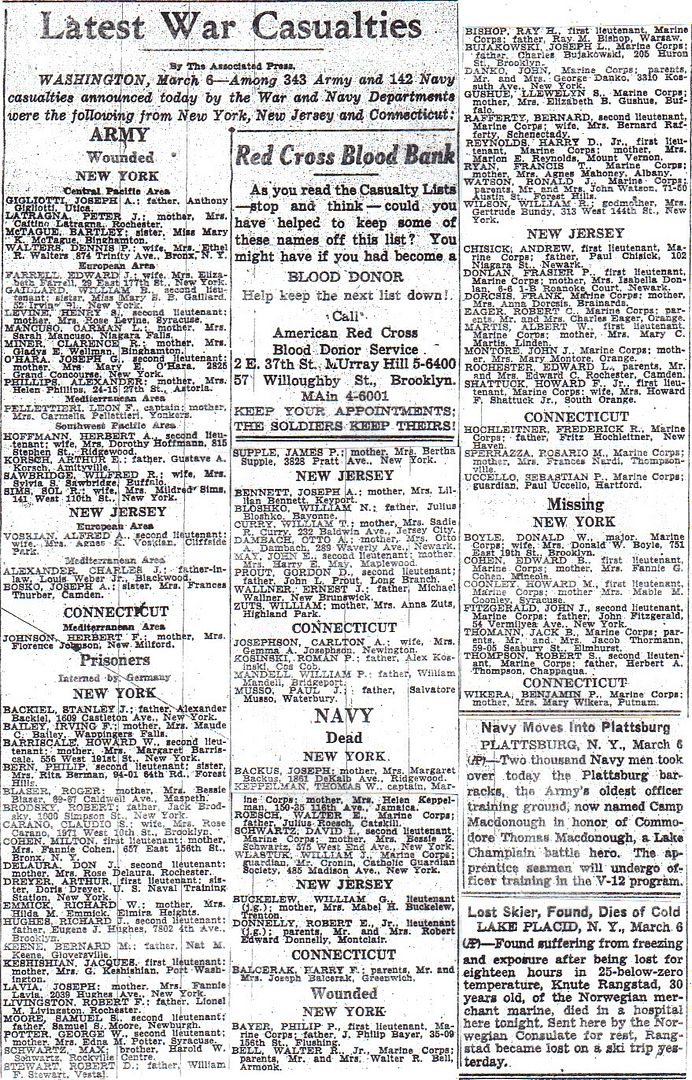
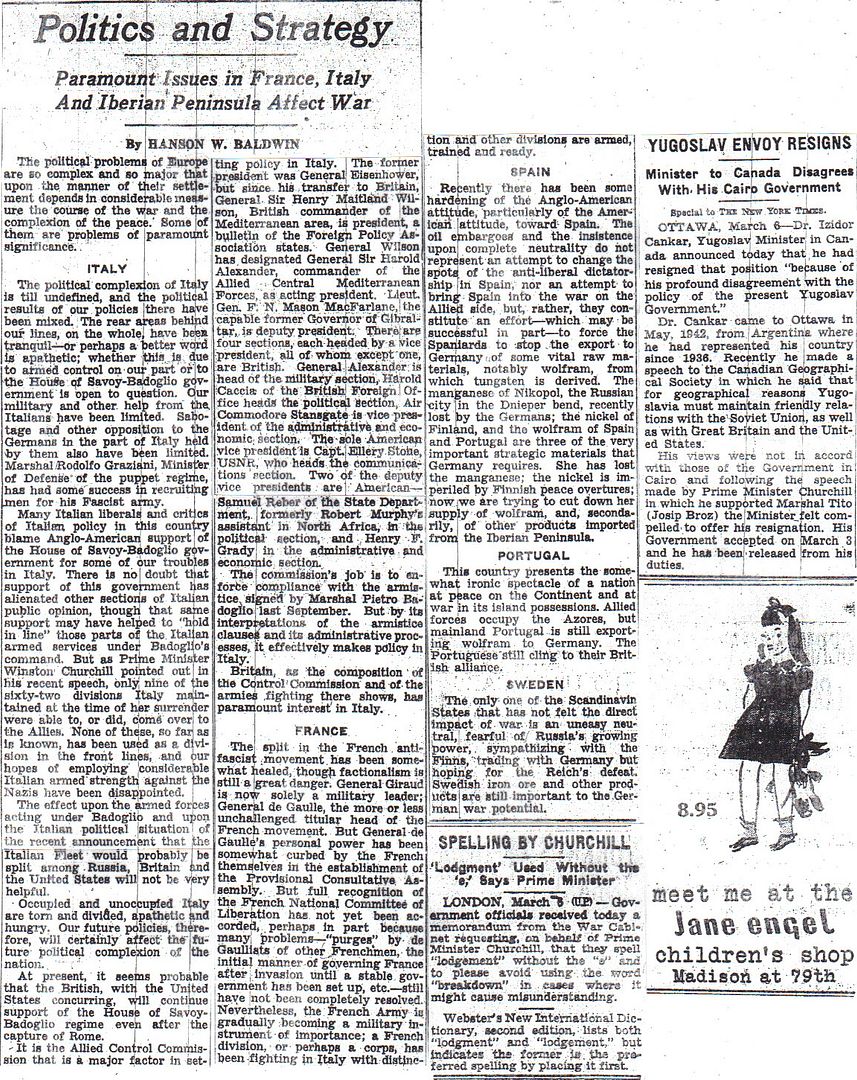
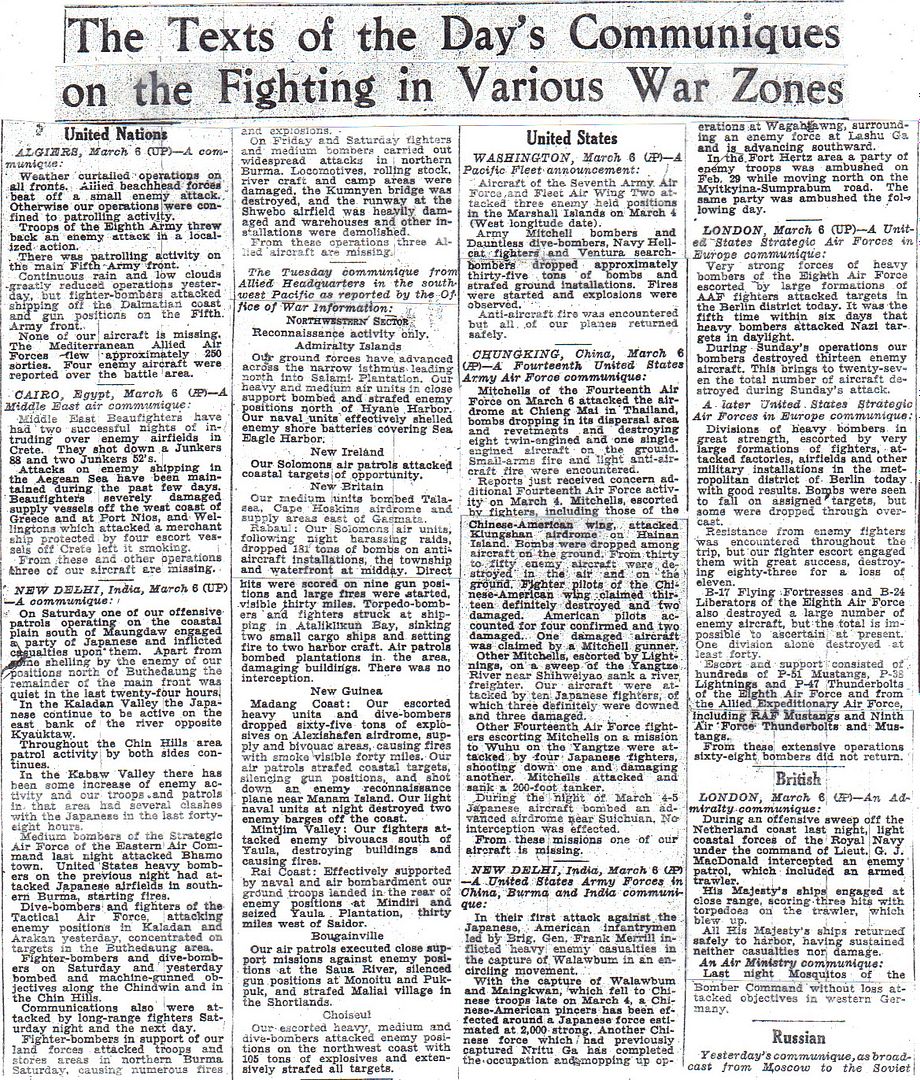
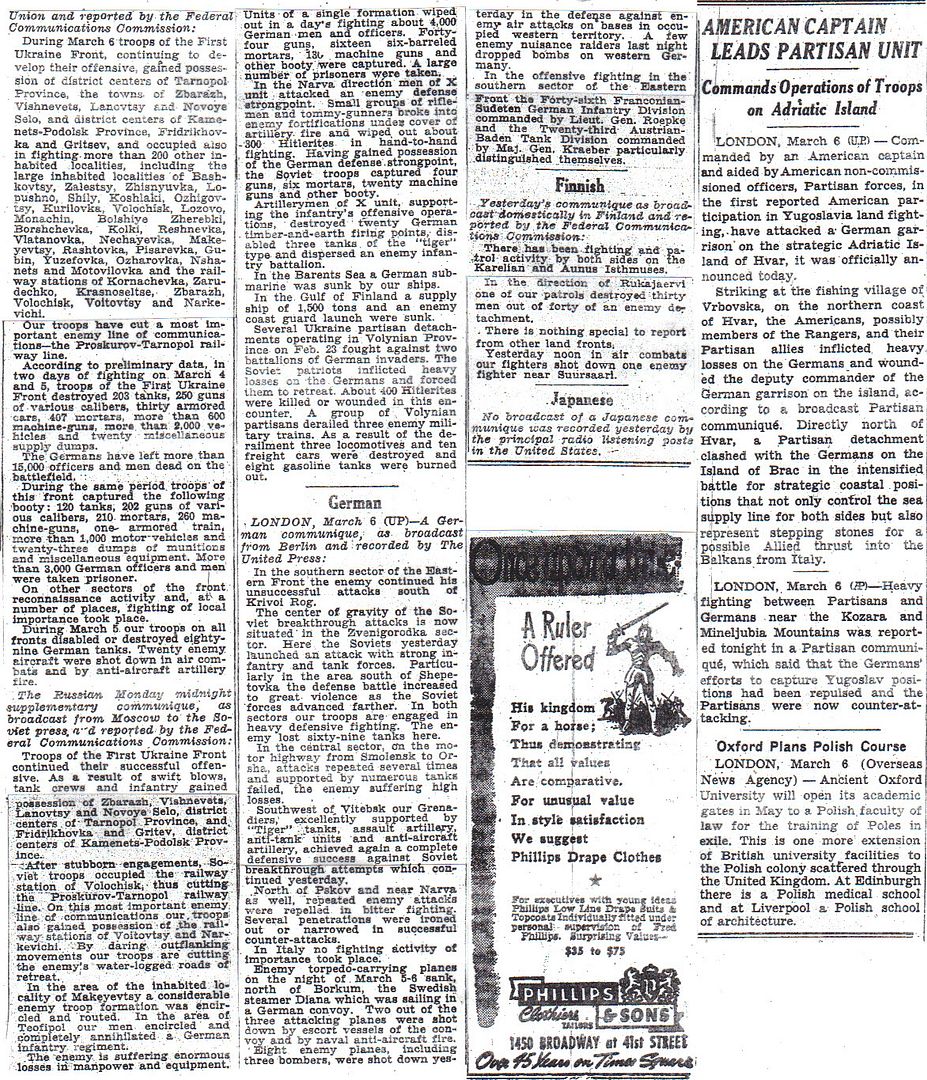
Sounds like an idea for a computer game. Reminds me of the Twilight Zone episode where the tank crew on maneuvers around Little Bighorn goes back in time to join Gen. Custer. After they share his fate their present-day CO says something like, "too bad they didn't take their tank with them." If General Custer had a couple Shermans with him we might all be speaking, um, English.
However, from what I've read Arnold and the others in high command still believed they could destroy the German aircraft industry from the air. The full degree of the ineffectiveness of strategic bombing would not be known until after the war.
Also, American effectiveness was much better than the Brits because we bombed in daylight and had the Norden sight. Frankly, I dont think the Brits cared if they hit anything or not - they wanted to destroy the major German cities.
Finally, consider the effect of the air campaign on Germany's military effectiveness. A huge percentage of German industry and a big chunk of her armed forces are now devoted to producing aircraft and anti-aircraft weapons and manning the defenses. That is production and manpower that is not in Russia or in France preparing for us.
Stillwell underequipped them, undersupplied them (including not enough food) and improperly employed them. Medical support and evacuation were inadequate. Stillwell even refused to coordinate their movements with the British because of his paranoia about them. By the time they will fight and win their last engagement, Myitkyina, they will have almost no combat effective troops left.
The men were tough as nails and fought like devils, proving the concept of long range penetration and reconnaissance tactics, a primary mission of the modern Rangers. The descendant of their unit is the 75th Ranger Regiment, the primary Ranger unit in the U.S. Army. The Regimental tab still bears the shield of the 5307th Composite Unit (Provisional), Merrill's Marauders:

Note the combination of the Chinese sun and American star, from our respective flags.
WW II was the last time that Americans were willing to accept casualties as the necessary price of victory, that the lives of troops weren't important in the big picture. The country was innocent, censorship was near absolute, and considered necessary for the greater good ( remember the story of the 800+ US troops killed during a training exercise shortly before D-Day, when German E-boats attacked the exercise)
All very interesting comments.
As I've said before, every 88mm flak gun shooting at B17s is not shooting up T34s. Every FW190 making a pass at B24s is not keeping the Stormoviks off the panzer divisions.
The allied bombing of Germany was largely ineffective for lack of a coherent and coordinated strategy. The bombing offensive was only effective once the allies realized the weak point of the German economy was the coal gasification plants that turned out synthetic oil. They were large and complex, and not easily dispersed. They were highly vulnerable to bomb damage and took a long time to repair. Once the allies began deliberately targeting these facilities, the German war machine was crippled.
LeMay took many of these lessons learned and applied them to the strategic bombing of Japan. Although Japan was not as highly industrialized as Germany, and much of the economic dislocation of Japan's was due to naval action, LeMay's six month bombing offensive was far more effective than what the 8th AF and RAF accomplished in two and a half years. Before LeMay's arrival, the 20th Air Force was pursuing the same strategy as used in Europe, and was just as ineffective. LeMay studied the problem, and realized the incendiary area bombing would be effective. He also deliberately diverted resources to the coastal maritime mining campaign. The next step was the severing of the inland rail links. Given another 30 days, LeMay's tactics would have guaranteed the starvation of millions of Japanese during the coming winter.
The nation had the will to fight and a willingness to accept casualties, within reason, in WWII. Part of it may have been witnessing the horrific casualties being suffered in Russia which made ours pale by comparison. And the American press well publicized the terror the Blitz inflicted on British civilians, which thankfully we never had to endure.
Vietnam really seemed to sour the American people's will to endure substantial casualties in a foreign war, but that's another story.
But to go back to the air war, I think we may have a situation where both sides are right. You are correct that the Air Force constantly analyzed film to assess bomb damage and had very accurate data. What they knew but for obvious reasons weren't telling the civilian press is that they considered 20% of bombs in a 1000 ft. radius acceptable and 40-50% quite good. That's in contrast to what civilians were told (who ever said this?) that with the Norden sight the Air Force could drop a bomb in a 55 gallon drum. Hardly. But the commanders believed that with enough bomber strength, which was being achieved in 1944, with that level of accuracy the German aircraft industry and therefore the Luftwaffe could be destroyed. What they didn't count on was the ability of the Germans to repair damage and get back into production, at least in 1944.
In terms of losses, I would say they learned a lesson in the early raids in Germany beyond fighter cover, especially in the Schweinfurt raids, that the losses were just unacceptable. No matter how tight the "box" formation, without fighter cover the losses were too high. As a result, as I understand it, they backed off those deep penetration raids until the P-51's arrived to provide escort to the target and back.
The last couple of days Homer has posted a quote attributed to Goering that once he saw American fighters over Berlin, he knew the jig was up (or whatever the equivalent German phrase). Still, it came at an incredibly high price and you're right the public didn't know it at the time. HALF of the USAAF WWII casualties were suffered by the Eighth Air Force, including 26,000 dead. That's still hard for me to fathom.
Fascinating!
I just got the book on the North Africa campaign from the library, so I’ll be going back in time for a few weeks. It’s a very big book ... I’m glad I didn’t request the Large Print edition.
The first phase of the US European bombing campaign was primarily an attack on U-Boat production and basing. Even the Air Force admits that its contribution to the defeat of the U-Boats was marginal at best.
I always thought that the targeting of the U-boat pens and yards was more a matter of starting of with relatively “safe” missions rather than the priority of the targets themselves. The pens in France were within range of fighter cover. The yards in Wihelmshaven and Bremen were on the coast, and not deep inside Germany.
Regardless, they didn’t do anything to the U-boats. The Germans shifted production to Gdansk, and used the Baltic as their private backyard pond to work up new boats and crews.
In a way, you are correct. When the Allies started to target German oil production, that pretty much stopped the Panzers and Luftwaffe fighters. This was also how the Allies stopped Japan’s war machine by choking off its oil supply (Japan didn’t really know how to convert coal into motor fuel like the Germans did).
It's interesting that LeMay's success in Japan suggests the British weren't as off base in Europe with their nighttime incendiary bombing as the US thought at the time.
That's why when Tokyo was firebombed on the night of March 9-10, 1945, the destruction was enormous: 16 square miles of the city was wiped out, killing (by some estimates) as much as 125,000 people (the official Tokyo police count of just over 82,000 dead was based on the bodies they could identify; many victims were completely burned beyond recognition) and essentially wiping out the small production workshops through most of the city.
Correct. Indeed, the fact that much of Japan was built of wood was the genesis for the “bat bombs”...one of the great, though lesser known, ideas of WW II
I think it’s more that the techniolog of war advanced so rapidly..people really couldn’t process it. Everyone talks about the vaunted German blitzkrieg, and the quick destruction of Poland. True. Yet look at the pictures of German troops at the start of hostilities, and a great part of the German artillery and supply train is HORSE DRAWN. Yet 6 years later, we had the atomic bomb. Before the Bulge, when most everyone thought the war was over, Ike positioned several newly arrived, raw divisions, in the Ardennes. In his memoirs, he explains t hat this was to “get them blooded” as the term of art then was..the expectation that they’d seen some small company sized skirmishes...get used to combat..that’s what I meant by not valuing the individual life of each soldier as against the context of the greater goal.
While the “bat bomb” idea worked, trying to get the bats to Japan proved the idea’s impracticality. It was just easier to drop a large number of M-47 and M-69 incendiary bombs on Japanese cities, and the March 9-10, 1945 raid on Tokyo proved General LeMay’s tactic of bombing from just one mile altitude with a huge number of incendiary bombs was the right tactic.
Just as the Allied bombing of Germany didn’t become effective until we targeted the synthetic oil plants, the American submarine campaign against Japan also became much more effective when we began deliberately targeting oil tankers. Of course, the American submarine torpedo problems are well-known, and they were only resolved in late 1943. And the submarine campaign has been effective in 1943. But during 1944, the subs will accomplish against Japan what Doenitz failed to do to Great Britain. Even before we seize the Marianas and the Philippines, the submarines working the Formosa straight will put a choke hold on the Japanese war machine. There is a reason the IJN moved the fleet to Lingga Roads off Singapore, and not the Home Islands, to train the new crop of naval aviators. The Japanese can no longer bring home the oil, so the fleet has to go where the oil is. In fact, the Brunei oil is so light and sweet, the Japanese are pouring it directly into the bunkers of their ships without refining it.
Disclaimer: Opinions posted on Free Republic are those of the individual posters and do not necessarily represent the opinion of Free Republic or its management. All materials posted herein are protected by copyright law and the exemption for fair use of copyrighted works.